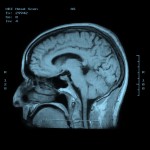I saw an article on brain development in my potential blog post pile from the August 21, 2012 print edition of The Wall Street Journal (it appeared online on the 20th). The health writer, Melinda Beck, mentioned that lots of parents of "20-somethings" worry that their kids weren't as far along in their lives as they (perhaps vaguely) remember themselves to have been at that age. She then described a variety of research projects that tell us young adults are better off making major life choices (job, marriage, finances) in their late twenties.
So what's the background for that statement? If we look at the human brain and its ten billion nerve cells, AKA neurons, each one of which is connected to another ten thousand other neurons (that's the average figure only), we're seeing the equivalent of a major computer, albeit one that doesn't work anywhere near as fast as our speediest computers. But our brains have the ability to learn from experience, remodeling connections and letting us be self-aware.
The brain is divided into lobes and each has a different function. The frontal lobe, as the name implies, is in the front part of your brain and is crucial for decision making, planning and problem-solving (as well as having portions that control the nerves which let you make muscle movements). The part of the frontal lobe that's just back of your forehead is called the prefrontal cortex and is one of the last portions of our brains to fully mature.
The HHS paper on this subject (link above) says that portion of the cerebral cortex, also called our gray matter, is often referred to as the "CEO of the brain."(in preserved brains it actually has a gray color and is quite thin, about a tenth to a fifth of an inch thick). I think of it as the working part of our brains. It plays a key role in our memory, attention, thought, language, consciousness and perceptual awareness.
The medical research that asserts brain development isn't finished until we're in our mid-20s also notes that this particular part of the brain is the crucial area for exerting good judgement when there are tough choices to make. For instance: "Should I wear a motorcycle helmet when all my friends don't?' or "Does it make sense to down eight shots of whiskey just because one of the other guys did?"
I focused on the work of Jeffrey Arnett, PhD, a research professor in the department of Psychology at Clark University in Worchester, MA. He coined the term "emerging adulthood" and has written extensively on the subject (I've supplied a link to the first chapter of his book on the subject and purchased the Kindle edition of his book for my iPad).
This is by no means the first time in our history that young adults have found difficulties in establishing themselves as independent entities. In a book I've been reading about the Wright brother (The Bishop's Boys, W. W. Norton & Company, 1989), the period after the lengthy depression of the 1890s is described as one in which "...young people were finding it much more difficult to strike out on their own than their parents and grandparents had." In that timeframe, as in this current one, many young adults often found it necessary to remain in the homes of their fathers and mothers.
Another highly significant body of work has come from neuroscientist Jay Giedd, MD, at the National Institute of Mental Health. His focus, shown in the video I'll link to, has been the teen brain which he studied extensively using repeated MRI brain scans. Much of our leaning, in past generations, has been by example, following in the footsteps of a skilled craftsman. Now we have a new group, the so-called "digital natives," more used to multitasking and the use of electronic gadgetry.
Our developing brain reaches 95% of its adult size by the time we're six, but neural pathways can be strengthened through acquired skills, or pruned by disuse. Our teen years are often times for risk tasking and experimentation, physically with its threat of traumatic brain injury and chemically via potentially destructive drug and alcohol use and abuse.
The WSJ article I cited mentioned that rates of anxiety, depression and a number of mental-health problems, including some that are severe and potentially life-threatening, run higher in teenagers and 20-somethings than at any adult age other than those who are in their 80s. Dr Arnett is quoted as saying, "...some find it (this stage of life) overwhelming." If you are the parent of a young person in this age range and are concerned your child has mental-health problems, Dr. Jennifer Tanner, co-chair of the Society for the Study of Emerging Adulthood, strongly recommends seeking professional help.
I'll read more of Arnett's book and return to this topic in another post or two.



